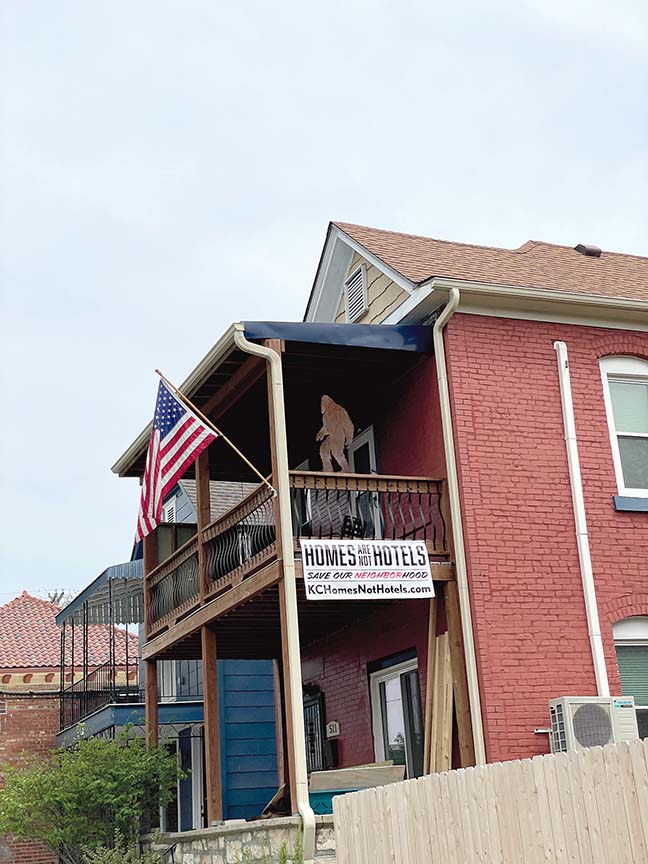
Abby Hoover
Managing Editor
After months of advocacy by neighborhood leaders and residents, Kansas City has passed stricter rules for non-owner occupied Short-Term Rentals.
In Kansas City, short-term rentals represent an estimated seven to 11% of the city’s overall hotel room supply, with upwards of 2,000 unit listings. However, nearly 90% of them were not registered with the City’s Planning and Development Department.
With the passage of Committee Substitutes for Ordinances 230267 and 230268, short-term registration is eliminated from the City’s Planning and Development Department and moved to the City’s Neighborhood Services Department, which is staffed for code enforcement, compliance, and community engagement.
Director Forrest Decker said in Wednesday’s committee meeting that the department plans to hire additional staff to process applications and enforce the new rules, as well as create educational materials and hold meetings to make sure the ordinances are understood.
The ordinances passed the Neighborhood Planning and Development Committee unanimously and moved on to the full council, where they were passed unanimously, with Mayor Quinton Lucas excused.
“One of our number one goals in Kansas City government is to make sure we are protecting neighborhood quality-of-life and housing availability,” Mayor Quinton Lucas said after the ordinances passed. “We heard growing concerns from our neighbors about trash, noise, and violent crime associated with short-term rental properties. We are committed to regulating them to ensure we continue to have neighborhoods accessible for residents, not unregulated hotels operating on quiet city blocks.”
The ordinances lay out guidelines for registering new Short-Term Rental (STR) properties in the City, which go through the Neighborhoods Department starting June 15, 2023. The legislation establishes a flat registration fee of $200, increasing annually based on the Consumer Price Index.
A frustration for investors, non-resident STRs are no longer allowed on residentially-zoned (R) property. Previously approved non-resident STRs are allowed to continue in R districts. New ones will not be permitted.
The ordinances require registration for previously approved STRs under the new regulations established in Chapter 56, once their annual registration under previous regulations in Chapter 88 expires. STRs registered under Chapter 56 must re-register if the property changes hands.
The legislation also adds a recordkeeping requirement for complaints received and other transaction information.
Neighbors and advocates were frustrated with the lack of power for the City to enforce its regulations in past years. The new ordinances add some “teeth” for the City to deal with STRs in violation of City code, like a one-year deregistration for any non-resident STR in violation and a three-year deregistration for (a) 3+ convictions under this Code, state, or federal law; and (b) finding that STR presents a present and pervasive threat to or disregard for public health and safety.
The ordinances make it easier to use half of an owner-occupied duplex or an accessory dwelling unit (ADU) into a short-term rental, with one STR per parcel, and individual kitchen facilities.
Enforcement of the new ordinances will be much easier. If someone lists an STR without a permit, they are considered in violation. To control the density in non-residential areas, non-resident STRs have to be 1,000 feet apart.
Under the new rules, multi-family buildings can have 12.5% of units as STRs, unless they are accepting tax abatements.
Like many cities around the country have implemented, the ordinances require booking platforms to remove any unregistered or deregistered STRs.
Additional information on the short-term rental registration process will be forthcoming and educational sessions will be announced.















